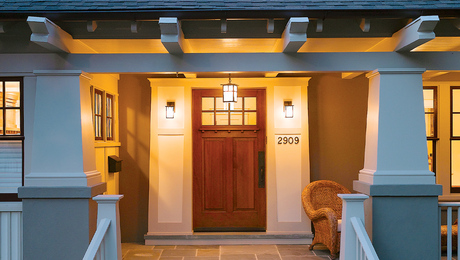I have a situation that requires some fresh eyes/perspective.
(A little background, I am still green when it comes to running my own company. I frequent the biz folder, learn a lot, and champion most of the given advice. But I always find some nuance in my own situation that makes me second guess what I am doing, thus this post).
I was recommended to a potential client from the architect who designed their addition. I reviewed the dwgs., met with them and offered a budget range based on what I thought the project would take. The high end of the budget was, in their eyes, “a deal breaker”.
Since they are not seeking bids from any other contractors, they requested that I bid out the various sub-contracts to ensure that they are getting a fair deal, and they requested to see those bids. I agreed to this but said I would require a fee for preparing this proposal/bid summary.
Got their check (didn’t cash) and set out to prepare the proposal.
Getting bids back now and see that the project is going to approach the higher end of the budget. I have yet to bid every phase, but I suspect this project won’t be built (by me).
Here comes the nuance. . . .
I feel guilty for charging them the fee if the project doesn’t continue.
I also feel bad that the archy gave me essentially exclusive rights on the project and then it may not go anywhere. Potentially makes him look bad and that could affect me.
Archy and me have a good working relationship. He has started to feed me work and I have fed him some work. I work in a smaller town and want to preserve the relationship.
I’ll take all the free advice/critique you care to offer.
Thanks.



















Replies
You normally work for free? You have no bills to pay nor expenses involved with bidding the work? They did agree to pay the fee, correct? If the next 6 jobs go exactly like this one can you afford to continue to do this for free? You need to make no money on a regular basis? If the architect you are discussing drew the plans but the job doesn't get built do you assume he would wave his fee?
At what point do you feel that you didn't do something of value that you should be compensated for your time? You did say you told the clients up front the range in price and yet the asked you to continue the investigation, and agreed on a fee. I fail to see the issue. DanT
Dan,
"If the next 6 jobs go exactly like this one can you afford to continue to do this for free?"
"At what point do you feel that you didn't do something of value that you should be compensated for your time?"
I need the objective perspective/reminder. I even preach to other contractors that estimating has value and you shouldn't give it away. Easier to see it when you aren't in the driver's seat.
Seeing the tree rather than the forest?
"I reviewed the dwgs., met with them and offered a budget range based on what I thought the project would take."
I don't like to give ANY numbers unless they are accurate. That takes time. Someone has to invest in paying for that time. Sometimes it's me, sometimes it's the potential customer, but that decision is mine to make when I decide whether or not I want the job, and how much I'm willing to invest to get it.
But I resist the urge to give ANY "ballpark" numbers. What good can come of it?
As for the architect - why not take him to lunch and explain the situation you find yourself in? Explain how much you value the relationship with him and want him to know that you appreciate the referral, but sometimes it's simply not a good match between builder and customer. If he's a professional he has probably run into similar situations between him and potential customers that have been referred to him.
"Communication is everything" (Lee Iacoca)
Huck said it first. I just agreed with him.
Jim,
I don't like to give ANY numbers unless they are accurate.
I agree in principle, usually an off the cuff guess has a negative effect one way or the other.
I am still honing this craft, but I have started to follow the practice of offering a budget to establish if the client is serious or can afford the project.
I avoid the random guess, but I am willing to sit down and donate an hour or less to establish the broad strokes of the project. If they want more detail, I offer a fixed price proposal, for $xx fee.
your also right in that I need to speak with the architect about the situation.
"As for the architect - why not take him to lunch and explain the situation you find yourself in? Explain how much you value the relationship with him and want him to know that you appreciate the referral, but sometimes it's simply not a good match between builder and customer."
And vintage1 can share the quotes from his subs that validates his original price range quote, thus proving that he's not simply trying to rape the referral.
Sounds like the scope of work, finishes or other changes need to be made by the architect to reflect the budget realities of the customer.
Whenever I run across a client that gets sticker shock I talk about how we can scale back on the scope of work - not my rate - to make it work.
Vintage1 - you provided an agreed-upon "for fee" service. Cash the check.
-Norm
first - how you 'feel' has more to do with your internal motivations and upbringing than with reality or this situation. You agreed to perform a service ( gathering prices) for a fee. They agreed to pay it and that infrmatiuon has realistic value. You will have erarned that fee when you make the presentation.
Welcome to the
Taunton University of Knowledge FHB Campus at Breaktime.
where ...
Excellence is its own reward!
Piffin,
You are right. how you 'feel' has more to do with your internal motivations and upbringing than with reality or this situation.
My wife tells me that I am too nice to clients and that I worry too much about these things.
I need to finish the bid/proposal and present it to them w/o prejudice as to their budget. The numbers won't lie.
its not personal, its business
Cash the check!!! Your "new" job is getting prices for these people using your skills. So you should be paid and not feel bad about being paid!
Take it a step further, find ways of reducing the cost at this time, while keeping up quality. Get some ready made instead of custom, less involved molding etc.
Give them the price and see what happens. You might have to sell it to them but offer the reduced cost version if you have to.
Ditto nigel. Cash the check, meet with them and deliver the actual costs, and suggest that maybe some value engineering could lower the cost. Be proactive, but don't bad mouth the archy for his design or selection of materials.
They "said" that the high end was out of their range, but you were only giving ballpark estimates. Show them the actual numbers. That way there is something concrete to base a decision on, you can cash the check with a clear conscience, and maybe they will take it anyway.
"Put your creed in your deed." Emerson
"When asked if you can do something, tell'em "Why certainly I can", then get busy and find a way to do it." T. Roosevelt
Edited 7/16/2007 8:12 pm ET by FastEddie
vintage,
All very good advice here...
Just from my own perspective...I have always been like you have described and worried about "taking" money, etc. And yet everyone else charged ME for their time....
As of late I have become the opposite and tell folks up front that my time is not free. IF they push me about it, I tell them they might want to look elsewhere for a contractor. It might seem a bit abrupt of me but I never feel like I am being taken advantge of anymore.
My only recommendation is listen to the folks here NOW and not wait too many years to do this like I did!
Mike
And yet everyone else charged ME for their time....
Mike,
I hear you.
I really try to practice the advice I read here in this business forum.
I know that I need to take the personal feelings out of the situation and conduct the business transaction.
Sometimes you just have to be reminded.
Thanks.
It's great to want a good relationship with the arch. and customers. To take care in what you do and how you treat people.
There is also nothing wrong with getting paid along the way.
I always tell guys when this subject comes up, it boils down to this.
You've only got two things in life, time and talent, and you better charge when someone wants either or both.
That'll be two cents...buic
Mr. "Vintage",
I can understand why you are struggling with what to do. I'm currently in the middle of my own massive home remodel. As a homeowner, I am paying a construction management company to oversea the construction on my house. The company's responibility is to work with the architect (its sister company) and to solicit bids from the subs and manage the construction project itself (making sure the subs are doing what they are supposed to be doing).
I understood from the very beginning that everytime they are soliciting bids for my project, I am being charged for their managment time. If I want more bids, its more time. I see every bid that comes through. But they are responsible for writing up the contracts and managing them. I too can participate in talking to subs or finding my own subs if I want. I don't know if its more expensive this way as opposed to having just found a general contractor, but there are some things that I really like about this. The project manager has no conflicts of interest when he spends time making sure my house is being built to plan. That said, I trust the project manager enough to know that they are not just billing me and kicking back.
If you explain and show your clients your work and the bids, perhaps they will understand. Also, the other thing that I like is that the project manager knows when someone might be priced high or when i might be getting good value for the money. I'm no bottomless money pit, but I am willing to pay for quality where its needed.
You have an opportunity to make happy clients and develop your relationship with your architect. As you stated the bids are coming in the higher price point. Talk with the architect and discuss some value engineering oppurtunities and present them to the owners if you are able to get the numbers in the range you need. Both you and the architect will look good in the eyes of the owner.
The other factor is that often that high point is not necessarily the case. If they have the dream addition on paper, they may find a way to find the funds to make it work-it happens often.
Keep your money-you've earned it.
Bruce
I'm curious about the numbers. What was the actual range you gave them, and what do you think the actual budget now needs to be?
If you can deliver a well-equipped version of the project for less than the high end of your range, cash the check.... although.... if it was a deal breaker at that level, why did they persist in having you estimate the job? Was their hope that it would be at the low end? Did you offer them any encouragement to think that?
If your range was 80-100K, and your estimate is now 120K, then your first mistake was that ballpark number. Those WAGs are the source of much trouble in this business. If you're in this situation then I would give back the check as tuition for a lesson learned.
David,
The budget range I provided was 35k-45k. That is about a 30% swing for the project, but it doesn't take too much for a HO to decide on options that will cost an extra 4k-6k.
I still think that a "well equipped" version of the project can be accomplished within the budget range, albeit closer to the high rather than the low. So I am not recommending that we now need to look at 50k-60k.
Those WAGs are the source of much trouble in this business
I agree with the above statement. I don't think I offered a WAG, rather I offered a budget that allowed some room to accommodate options, and swings in the sub-contract bids.
As an aside, how do you handle client's initial inquiries for project costs?
I would price it to what it would take to do, with your profit included.
then cash the check. If they take it, that their choice.
I almost never give information that cannot be relied upon. Most of my numbers are offers to do a fixed scope for a fixed price, and if people accept them then we're on. Generally I do a careful budget breakdown using a spreadsheet, and I spend the time to make it as right as possible. Usually there are allowances, and I explain those and tell them to go shopping and see if the allowance works for them. Most people exceed allowances, but they have the opportunity (thanks to the internet) to do a lot of shopping up front and see what their tastes will cost.
Sometimes I am wrong, or careless. I should have gone $32K on a recent $30K job but I didn't get electrical or plumbing subs out there to bid, and I got nailed. A little bit of that happens, but in some ways it's not so bad because of the time and mileage I didn't spend on getting subs to walk thru.
If I were preparing a proposal and being paid for it, I would try to do so without giving a quickie estimate up front. In your scenario I would have tried to get to the $50K+ number first and never mentioned the $35K. That low number sticks in their minds. I guess the other relevant point is that I try to find people who want what they want and can afford it.
"I guess the other relevant point is that I try to find people who want what they want and can afford it."
Word.Huck said it first. I just agreed with him.
>> "As an aside, how do you handle client's initial inquiries for project costs?" I would think that the safest and easiest thing to do would be to have a portfolio of past projects to show potential clients. Pick ones that are as similar as possible, have lots of pictures, and say "This one cost XXX in the year YYYY. It has a lot of copper in it, so now the price would probably be higher".This way you are not providing any service for free, and clients can get a sense of what projects have actually cost.
I would suggest you don't look at the project as so binary (i.e. go vs. no-go) Your services may well help them tailor the scope to a level that fits their budget. Until you get the bids, you have little information to give them as far as how much they have to scale back. This is a valuable service, and certainly deserves to be compensated.
However, I think the architect would appreciate a "heads up" to be able start thinking about possible strategies.
Vintage,
I often find myself in the same situation as you and would be inclined to not charge my client in this situation as well.
However, another member of this board gave me some great insight once over dinner. He told me that we feel bad about the prices we charge because we wouldn't pay that much to have it done... but we do it for a living so of course our perspective is diffenrent when we consider the value that we would pay. I think this comes into play a lot when we feel bad for charging customers for anything.
In your situation, here is what I would do... Call the customer and explain that the prices you are coming up with is near to the high end of the spectrum. You'd be glad to still provide the accounting/presentation for the fee or they can back out with no obligation.
Some other aspects of this situation come to mind. Perhaps the prices your are getting now are high because we are in the busy season. You could convey that to the customer and suggest waiting for the slower period.
There is also the ability to negotiate the quiotes you have. I know that subs will give bids that are higher for [projects that they aren't as certain to get. BTW, did you seek sub bids from others to get your pricing together? If so, were those subs compensated for their time?
Another point is that perhaps you could present to the client that their may be some cost-saving measures that you could implement in order to bring the cost within budget. This way, you can potentially save the job and get the work.
http://www.petedraganic.com/
Pete & Others,
I apologize as I am tardy in my response in this thread. I do appreciate the advice given and have considered this situation a learning experience.
FWIW, this is how the situation played out.
I respectfully declined to continue in this negotiated bid format. The owner and I had different expectations/objectives during the bid process. His intent was to have every phase of the project bid out to ensure "market pricing".
This left me in a position of soliciting bids for work that I could do in-house, essentially bidding against myself. It was not a good fit. I returned the proposal fee and wished them the best. I also talked with the architect and explained my perspective. He was respectful of my position.
Several people have suggested value engineering or reducing the scope of work, however this was a garage addition and there were few things that could be eliminated in order to complete the project.
Pete-
You asked if the subs were compensated for their bids. The short answer is no. Sometimes I think that this is a double standard, since I want to be compensated for my bidding/estimating. However, I think that it takes much less time for one individual sub to provide a quote for their portion of the project compared to a GC assembling all of those bids, materials, project mgmt., etc.
Having said that, if my subs wanted/needed to be compensated for providing quotes, I would understand the motivation and would try to incorporate that into my proposal fee.
In any business venture, the only people involved who should not be compensated if a project doesn't go ahead are the investors who take on that risk as part of the price of making a profit. Employees and contractors are not speculators - which is essentially what clients who commission a house are.
Cancel a hotel room or miss a flight and see what appears on you Visa statement. Your lawyer won't waive his fees if you are found guilty. Your doctor charges for the exploratory surgery that brings bad news. Why be the odd man out?
As an aside, I don't provide clients with multiple bids for subtrades. I explain that I always use the same ones, who I have established a long term relationships with, and that this guarantees the quality of the work. If they are looking for a builder who can squeeze a few bucks out of the contract by competitively bidding out every job, you probably don't want to be their guy.
Vintage,
I , a DIY, am reading this thread in disbelief. You have performed a service as requested. You have spent time and resources. They agreed up front to pay. The price is higher than expected, that is not your fault. That is why they hired you. Unless you are looking to be a charitable organization take the money. You are a professional, you deserved to be paid. The archy is going to understand, he does not work for free.
Also, after people think about it they often readjust the amount they can pay. Spouses, have a way of working you over. Just human nature. Cash the check.
I agree with most all of the comments here so far.
It took me a few years to realize that I should not do work for free. We charge no fee for our initial consultation, but if the client wants us to develop a budget and scope of work, then we charge a % fee based on the budget we establish; usually in the 5-7% range.
I have found after doing this for 30 years that clients who are operating from a position of integrity will understand that there is work invoved in my company developing the initial budget and scope.
The only time we have a problem with a potential client is when they are trying to get something for free, such as a complete itemized bid along with layout and perspectives. We do run into those every now and then, and we quickly recognize them for what they are and we cut the process short and suggest they look elsewhere.
sully